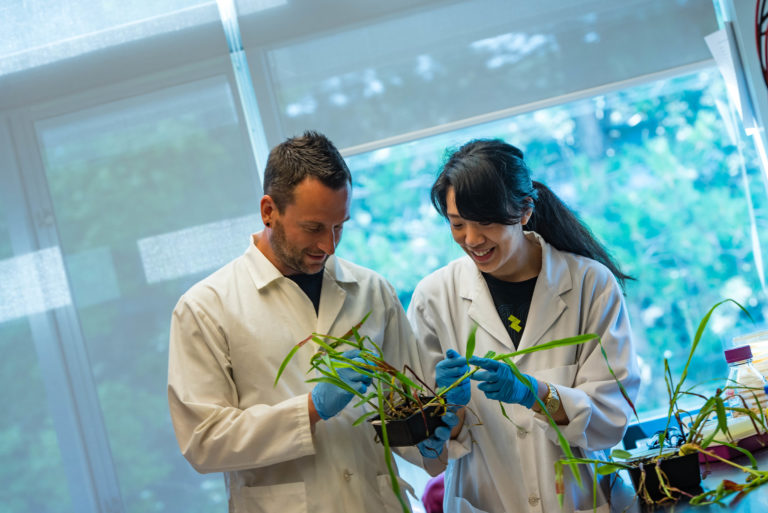-

Cancer drug shows potential as treatment for muscular dystrophy
Researchers at UBC’s School of Biomedical Engineering have discovered that an existing cancer drug could have potential as a treatment for muscular dystrophy.
-

Southern resident killer whales not getting enough to eat since 2018
The endangered southern resident killer whale population isn’t getting enough to eat, and hasn’t been since 2018, a new UBC study has determined.
-

This scientist is taking an international jellyfish tour to explore mucus and medusae
From some of the largest jellyfish in the world in Japan to the tiny venomous Irukandji in Australia, UBC doctoral student Jessica Schaub is about to set off on an international tour of jellyfish.
-

Black people in the U.S. twice as likely to face coercion, unconsented procedures during birth
Black people in the U.S. are twice as likely as white people to be coerced into procedures during perinatal and birth care, and to undergo them without their explicit consent, according to a new study by researchers at UBC’s Birth Place Lab and the University of California San Francisco (UCSF).
-

UBC experts call for proactive approach to prepare for more extreme wildfires
In this Q&A, UBC forestry experts address how families and communities can prepare for more extreme wildfire seasons.
-

Access to safer supply rapidly increased during COVID-19: study
The number of programs and prescribers offering safer supply to reduce risk of overdose increased dramatically in the early days of the COVID-19 pandemic, according to a new study looking at services across Canada.
-

Peanut allergy treatment safest when started for infants under 12 months
UBC researchers demonstrated in 2019 that pre-schoolers can safely overcome peanut allergies with a treatment called oral immunotherapy.
-

Vigilantes seeking justice can also spell trouble for workplaces, study finds
Vigilantes are known for fighting perceived wrongs by taking matters into their own hands. But what effect do they have on workplaces? A new study from UBC Sauder shows that vigilante behaviour can pose challenges for organizations because it is increasingly coming from outside as well as within the workplace.
-

Fungus in a test tube first step to curing ‘corn smut’
Researchers have mimicked a corn plant’s make-up in the lab to investigate ‘corn smut’, opening the door to finding a cure for the disease.




